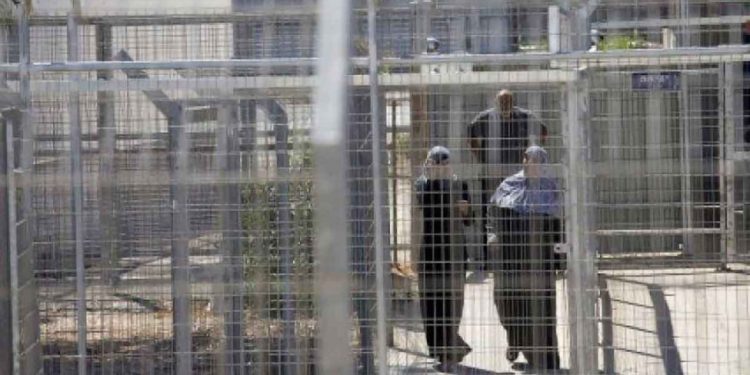Today, Wednesday, three women Palestinian prisoners held incommunicado in Israeli prisons began an open hunger strike.
The three prisoners are Mona Qaadan, Marah Bakir, and Shorouk Dwaiyat.
The remaining 32 Palestinian women prisoners are expected to join the strike as well.
The Israeli occupation prisons administration continues to hold the two women prisoners, Bakir and Doyat, incommunicado in the Israeli “Damoun” prison, while detaining Qaadan incommunicado as well in Gilboa Prison.
The women prisoners on hunger strike are calling for “the formation of a specialised international investigation committee to investigate the abuse and assault they face at the hands of the prison administration of the occupation prisons.”
Meanwhile, today, Wednesday, prisoners in the Israeli occupation prisons continue their protest against the “systematic attack” by the Israeli prisons administration against women and men prisoners in Nafha prison, specifically in Section 12.
The means of protesting will be the closure of all departments, and the return of meals.
It is worth noting that the occupation prisons administration carried out “successive repressive campaign against women prisoners over days, with systematic abuse and unprecedented assaults, isolating three of them, and imposing penalties against them,” according to the Prisoner Club.
Last Sunday, the administration of the Israeli Damoun prison (north of the occupied interior) beat women prisoners and prevented them from showering for three days, after cutting off their electricity, removing their headscarves by force, dragging them by the neck and arbitrarily moving them from their cells, according to prisoner affairs institutions.
The arrest of women by the occupation has increased significantly since 2015, and the number of women prisoners who have been arrested since 2015 has reached more than 1,000, including mothers of Palestinian prisoners and dead, in addition to minor girls, especially in Jerusalem.
The Israeli occupation practices methods of torture and abuse against women prisoners, holding them in cells that are not suitable for human life, in addition to the poor living conditions and high humidity during winter and the floor of Al-Fura Square, while the prison administration claims having insufficient funds for the reforms that threaten the lives of women prisoners.
The women prisoners use blankets as a cover to bathrooms, in addition to having surveillance cameras in Al-Fura Square, in violation of their privacy.
Over the past years, women prisoners have protested against the ongoing violations practiced against them by the prison administration.
The number of women prisoners until the end of last November is 32 female prisoners in Damoun prison, including 9 mothers, while the occupation authorities are detaining 4,550 Palestinians, about 170 minors, and about 500 administrative detainees in its prisons.





























